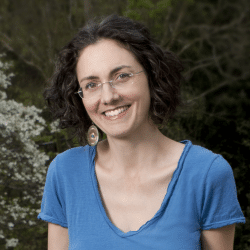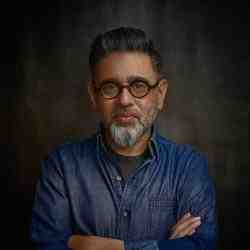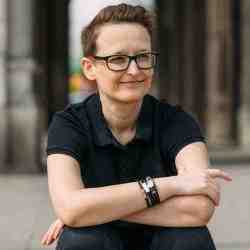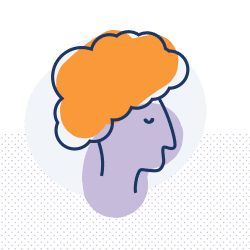Introduzione
Riccarda believes that maternity leave should be understood by parents, colleagues and employers as a time of profound learning, rather than simply time away from work.
La nuova idea
Riccarda believes that work-life balance should radically be redefined, so parents can stop seeing their time off work spent with their children in conflict with their careers. To reach this objective, she works with employers, particularly in the corporate world helping them to stop seeing maternity leave and parental care as a burden, but as a time for developing key skills that are useful for personal as well as professional development. Riccarda refers to this concept as MaaM, Maternity as a Master(s).
After working in the corporate world for almost 20 years, Riccarda realized that while time off towards a Master’s degree is encouraged and even financially supported by companies, time off towards maternity leave is largely viewed negatively. When executives return from a Master’s program, they tend to be treated with more respect, involved in decision-making and strategic planning and are often promoted to more senior roles. Conversely, when women take time off work for a similarly lengthy period of time (maternity leave), they are considered distracted, less committed and are often relegated to simpler and more “feminine” departments, such as human resources or administration, upon their return.
It was also apparent to Riccarda that although she had participated in multiple corporate trainings, she had learnt a lot more during her two maternity leaves. Maternity leave had accelerated her acquisition of relationship skills, such as empathy, the ability to listen, to notice the slightest changes, and to motivate others. She also acquired organizational competences, such as multitasking, managing time more effectively, and continuously having to determine priorities and deliver promptly on them. Most importantly, she had also learnt to develop a vision for the future, to envision the long-term development of a child (and of herself and the family) and to plan accordingly to reach those goals. As she discussed these findings with other young mothers, she realized that this was a shared experience. She became determined to show that maternity (and also paternity) should be understood as a moment of learning and growth, with benefits that should be understood and welcomed by employers. She refers to the “meta-competence” that skills have to transfer from one role to the other as “transilience” (a mix of transition and resilience) to describe the fluid interplay between skills learnt at work and transferred to family life and vice versa.
With this basic premise in mind, there are two key areas of Riccarda’s work: the first, Piano C, focuses on spaces for mothers to actively cultivate skills development while on maternity leave or shortly after; and the second, a program that directly addresses a shift in perception of the paternal leave period within corporate culture.
Piano C (Plan C- an alternative between Plan A, a career and Plan B, a family) is a co-working space for mothers in Milan in which women gather, share their experiences, work on new projects and train each other on new skills during their maternity leave and afterwards. Critical to the success of Piano C is a kindergarten, allowing women to alternate between work and childcare at each individual’s time and speed. Piano C also offers young women a support in their entrepreneurial ideas providing consulting and mentoring. The model has been replicated in many Italian cities, through the open-source model of replication preferred by Riccarda.
At the same time Riccarda has begun a program for and within the corporate world. She works with human resources departments and with corporate executives to redefine maternity as a period of intense and valuable learning (much like a Master’s) and to change corporate attitudes towards it. She has also created a digital tool, Maam U, which helps mothers to better reflect on their learning while on maternity leave and to connect them with other mothers in the same situation. Riccarda begins her work by convincing the corporate world to change their thinking behind parental leave. Women who have a positive and less isolated maternity leave will be assets for the company, enjoying better morale and higher productivity. Riccarda thinks long-term about these relationships with companies -this is not simply a case-by-case utilitarian approach but rather an effort to radically change the corporate world by making work and life balance a new norm. Children will then be able to enjoy the time and attention of both their parents, and parents will enjoy learning from their children.
In line with these goals, Riccarda is also working towards a clearer strategy around redefining the balance between men and women when it comes to parenting and work-life balance. Riccarda believes that once MaaM is embedded in corporate culture, men will be sent home to practice those managerial “soft skills” that they currently train employees on through artificial life experiences done at professional trainings (survival courses, flight simulators, etc). Despite gains in gender equality, women continue to share a bigger burden of domestic work and childcare than fathers with great implications on career opportunities. When Spain elected Zapatero as a prime minister in 2004, one of the first governments to have an equal number of male and female ministers, it was sadly observed that only four of the nine female ministers had children. Women can increasingly make it to the top in politics or business, but that is still a lot easier when they don’t have children. By working with corporations, among the largest employers, to redefine maternity leave- combined with the use of technology that allows for working from a distance- the potential for this to ease the choice between career and kids is enormous. This will also necessitate a reconsideration of the role of paternity leave. Riccarda thinks that most men would welcome a longer paternity break (men often stand up during her workshops and say “I wish I had the time to take a Master’s in paternity”), if the system allowed for it and if their employers would not automatically expect mother to detach from work and father to cling on it. Riccarda is beginning to include men, both in her co-working space (phasing in fathers, currently representing only 10% of members of Piano C) and in her parental programs. This has also the potential to change the welfare system. If mothers and fathers were both pushing for a more equitable share of the duties, pleasure and learning that comes with caring for a child, a change in legislation will be more likely.
MaaM is already been replicated and it could easily spread around Europe and beyond. As Riccarda approaches multinational companies, it will become increasingly easier for her methodology to spread to other countries. The perceived conflict between career and parenthood is found in virtually all countries and the solution can quickly be applied internationally.
Il problema
In Italy as well as in other developed countries, the choice between family and career is more acutely felt by women than by men. When women get pregnant, especially when they work in the private sector, where long hours and weekend work are often the norm, employers, colleagues and often mothers themselves take for granted that their careers will decline as motherhood takes over. Many abandon work altogether within the first few years after giving birth. The percentage soars with women who have two or more children.
Italy has a relatively generous maternity leave (five months at full-pay, and up to a year after that with 40% of the original salary), but fathers get only three days of paternity leave (the figure was 0 until 2012). This means that young mothers also experience a sense of loneliness in the first few months of their children’s birth, leaving work and taking on sole responsibility for childcare. Consequentially, only 46% of women in Italy work, as opposed to an EU average of 60. The World Economic Forum ranks Italy as 41st in the world for gender equality. While in fields such education or healthcare, equality is almost perfect (0.995 and 0.974), Italy is ranked so low overall due to the poor economic participation of women. The index for gender equality at work is 0.56, meaning that for an equal task or job a woman is paid little more than half of a male equivalent . Italy is also the European country with the highest percentage of single income families: 37,2% according to Eurostat (2007).
22% of women with a regular job who fall pregnant are not employed 2 years after the birth of their child . This figure has increased from the same statistic in 2005, highlighting how the economic crisis that deeply hit Italy, combined with lower pay for women, has led even more women to leaving their jobs to dedicate themselves to childcare. This figure is particularly high for women working in the private sector (26%) compared to those working in the public sector (14%), confirming Riccarda’s intuition that this is a problem that can be tackled first by engaging businesses.
Data from Eurostat confirm that childbirth affect men the opposite way, with more of them working as they have children. Among 20 to 49 year olds in Italy, 77% of men and 65% of women without children work. If these adults have one child this figures becomes 91% for men and 58% for women. With two children, men maintain a 91% employment rate, which goes further down to 51% for women. With three children, the percentages are 85 and 34%.
The civil rights and feminist movement has made huge gains across the world and women enjoy levels of equality with men that were unthinkable only fifty years ago. Nevertheless, in terms of economic and labor participation, particularly for women with children, developed and developing countries alike still struggle not to discriminate against women. Like all revolutions, it begins with a change of paradigm: maternity is not a burden, not necessarily a time of isolation, but a time to learn and to connect. The time is right to make sure this paradigm shift affects internal policies of companies and, ultimately, the parental leave provisions of a state.
La strategia
Riccarda began by studying the scientific evidence behind her intuition. She discovered that neuroscience confirms that the period of care that follows childbirth (usually for women, but at times also for men if they become the primary attachment figure) transforms the human brain. Increased autonomy, resilience and determination are consequences of these cerebral changes.
She also partnered up with Andrea Vitullo, a coach that had experience within the corporate world, and began to gather empirical evidence. They surveyed a random sample of 1100 mothers (through a partnership with Corriere della Sera, one of Italy’s main daily newspapers) in which 87.5% of women confirmed their enhanced organizational skills, 86% their improved ability to listen as a consequence of their maternity leave.
She then began to develop a strategy that was two-fold. On one hand, she created Piano C, a physical place for mothers to meet, work, engage in care and experiment with new ideas emerging from MaaM. People refer to Piano C as a co-working space but Riccarda likes to emphasize also its co-baby service. Plan C is located in Milan, where it hosts an average of 80 professionals every month. Aside from desk space for co-working, it features several larger multi-purpose rooms for workshops or activities (including yoga) and a kindergarten. Aside from childcare, Piano C also has created a network of local businesses to help mothers with different chores which can be organized internally rather than from their homes (from dry cleaning to grocery shopping). Piano C has received over 100 requests for replication in other cities, Rather than working with a franchising model, Riccarda has preferred to spread her method as an open-source system and create a “reference brand”: Piano C Partner Network (PCPN) that other coworking spaces with alike philosophy can adopt without losing their own identity. They are connected across Italy and share business opportunities as well as a network of parents supporting each other.10% of the professionals are fathers: Plan C is ultimately a space for caretaking parents, even it that mostly means mothers at the moment. In 2012 it was awarded as Best Social Innovation by the European Investment Bank.
Since 2014, Riccarda has increasingly delegated the management of PianoC to other women to focus on the second element of her strategy: the work inside corporations. She organizes workshops created by CEOs, the human resources departments, parents and non-parents to make them aware of the human capital attached to the experience of becoming a caregiver. Pirelli, Luxottica, Valore D, Schneider Electric, HP, Invitalia, Ikea, Poste Italiane and Unicredit are among the many companies who have hosted such workshops. The workshops begin at the individual level, in which participants are helped to understand how to implement the skills they acquire through their children on the workplace. They also work on stereotypes and “parental leadership”, the idea that leadership at work should learn some elements from family life. As much as raising a child means to create autonomy and eventually to let go, a leader should learn to create projects that can survive without them (thus making temporary absence from work, for men and women alike, more feasible). She then tries to move from an individual level to company level, consulting the top management on how to make their workplace more in line with this new conception of leadership.
Her work with the corporate world has led to a new spin-off called Maam U, which accompanies a parent in their parental leave and invites them to reflect upon their learning. It also connects them with others in the same situation. Working, as well as training, during parental leave, is illegal, so the companies offer this as a benefit to those parents who desire to use it, rather than imposing it on everyone. Maam U is divided in seven chapters and structured as a Masters course, focused on relationship, care, empathy and complexity management. Maam U started selling in September 2015 and is now running in Poste Italiane, where 150 women are using it, and in the Wealth Management division of UBS, based in Zurich, with 20 women already involved globally. Unicredit and Eni are the next companies to launch it in Italy within the next months.
In most countries in the world (with the notable exception of the United States), the cost of parental leave is shared between the state and the employer. Riccarda begins with changes at corporate level to gain economies of scale. Companies are “small ecosystems”, Riccarda says, and new paradigms and methodologies can be tested there. At the same time, Riccarda’s increasingly visible presence in the media has enabled her to influence public opinion and ultimately the law. She was watched by hundreds of thousands of people on prime-time TV in mid-October arguing with a conservative politician who called Piano C “a circle of babysitters.”
Piano C has already spread to a dozen cities in Italy. The focus should now be on growing the work with companies in Italy and abroad and widening the maam U community by creating a lighter product, accessible to single moms even if they are not employed in big companies. Developing the online tool Maam U and making it adaptable to other contexts should be the focus on her work in the future.
La persona
Riccarda was born in Naples and raised in Rome. She studied in Siena and began her career in Milan, working for different corporations as a research, marketing and communication expert (Pirelli, Microsoft, Nokia and Banca Prossima). She has spent two years in Finland, when she was given the responsibility for CSR for the whole EMEA region for Nokia. In 2012, upon returning from her second maternity leave in three years, she found out that she had been demoted and moved to a new department. She felt she was forced into resigning and she decided she was going to address the issue of maternity leave as an entrepreneur. She has been working full-time on this mission ever since.
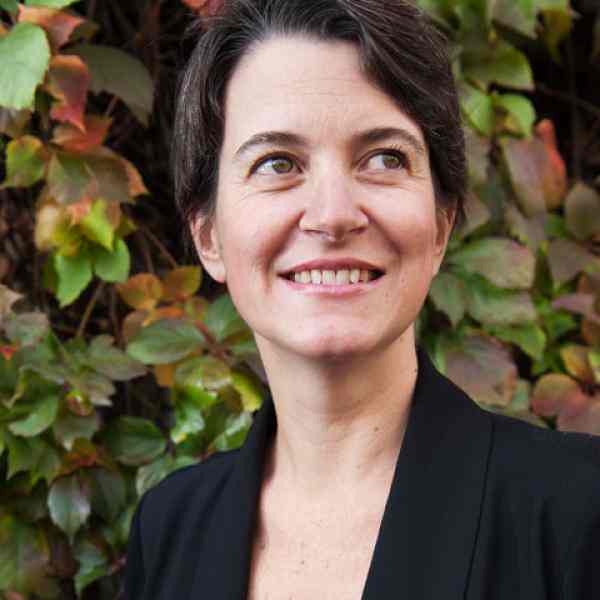
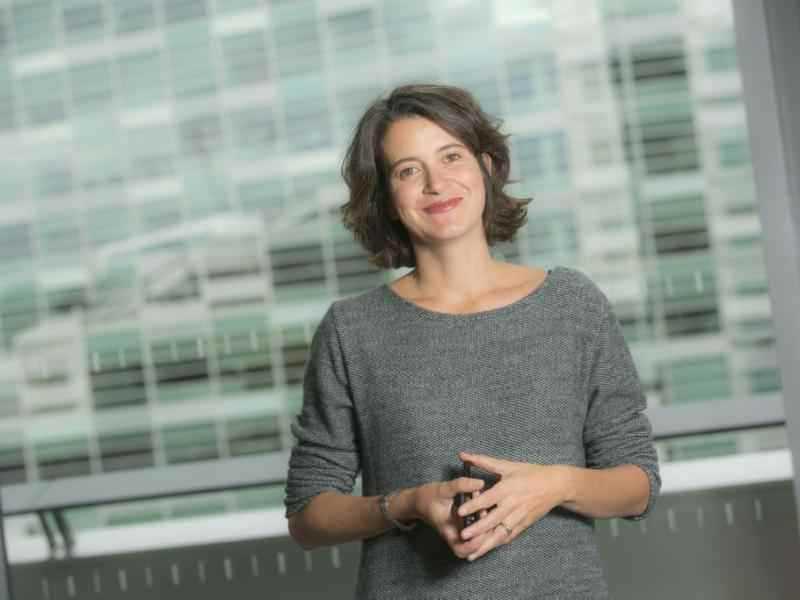 Tile image
Tile image